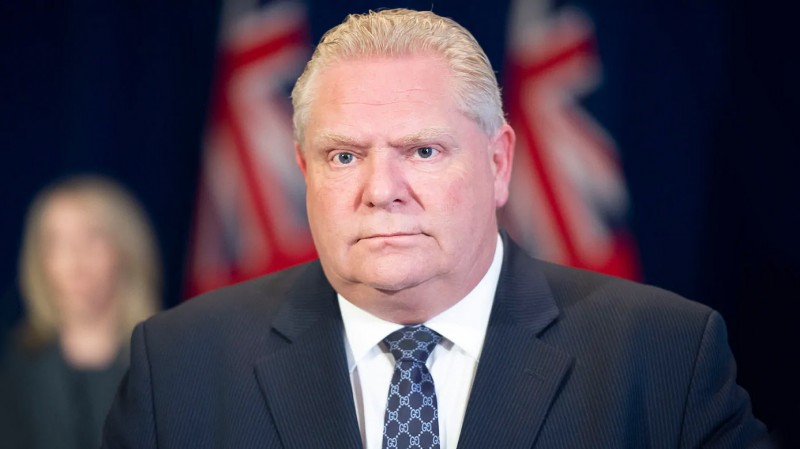According to a consultant’s report prepared for an Ontario casino company, the provincial government could bring in $550 million less in annual revenue than initially expected. The news comes amid Premier Doug Ford’s plans to open up the online gambling market.
The confidential report, obtained by CBC News and prepared for Ontario casino market heavyweight Great Canadian Gaming, warns Ford’s government could lose $2.8 billion over five years. The forecast claims annual revenue would decrease as a result of casino patrons shifting their spending to online sites once the province begins regulating the iGaming market.
Although Ontario would secure a new revenue source by taxing the regulated online market, the report claims this would be offset by a big shift in spending from brick-and-mortar casinos to iGaming and an expected lower tax rate imposed on online gambling than to casino spending.
The forecast, by HLT Advisory Inc., concludes that Ontario stands to lose out on $550 million in annual revenue for a total of $2.8 billion over the next five years, reports Sports Handle. In pre-pandemic years, annual provincial revenue from lottery and gambling amounted to as much as $2.5 billion.
However, companies in the iGaming sector have protested the conclusions, and the assumption that existing casino customers will shift to online gaming has been contested. Jeffrey Haas, senior vice-president of DraftKings, predicted that when the regulated market opens in the province, nothing would change “in respect to players’ entertainment habits.”
Great Canadian Gaming CEO Tony Rodio discussed the report, stating it included “critical learnings” from other jurisdictions that have introduced iGaming, resulting in the cannibalization of land-based operations in the process. “While we support iGaming in principle, the Ontario government needs to take the time to get this right,” he said in a statement retrieved by CBC.
Although not yet confirmed, current plans for regulated online gambling reportedly would include a 20% tax rate. That figure is significantly lower than the 55% tax on net gambling land-based operators in the province must hand to Ontario. Should customers flock to iGaming, revenue kept by state would be much lower, the report finds.
A similar scenario is expected for the sports wagering market, which is currently handled by the Ontario Lottery through the PROLINE+ platform. Should the province adopt an open-license model with taxation at 20%, the Ontario government could see profits down $138 million from 2023 to 2027.
The push to open a legal online market comes as Ontarians spend about $1 billion a year on internet gambling, according to official data, which is mostly placed on companies operating outside of the province. In anticipation of a launch, the government announced the creation of the iGaming Ontario agency last July, set to oversee the market.
The Canadian Gaming Association, a trade association representing operators and suppliers in the country, has defended the regulation of online gaming. Its president, Paul Burns, has stated that online gaming is already taking place in the province, only that without regulation.
“iGaming needs to be regulated in Canada. A billion dollars leave the country in revenues offshore,” Burns said. “None of the benefits will flow to Ontario until the market opens. Right now, the benefits are all outside of the province.”
Casinos in Ontario are currently experiencing hardships amidst a rise in Covid-19 cases in the province. Early this month, an announcement was made that indoor spaces, including gambling venues, would close for three weeks to prevent infections from spreading even more.
